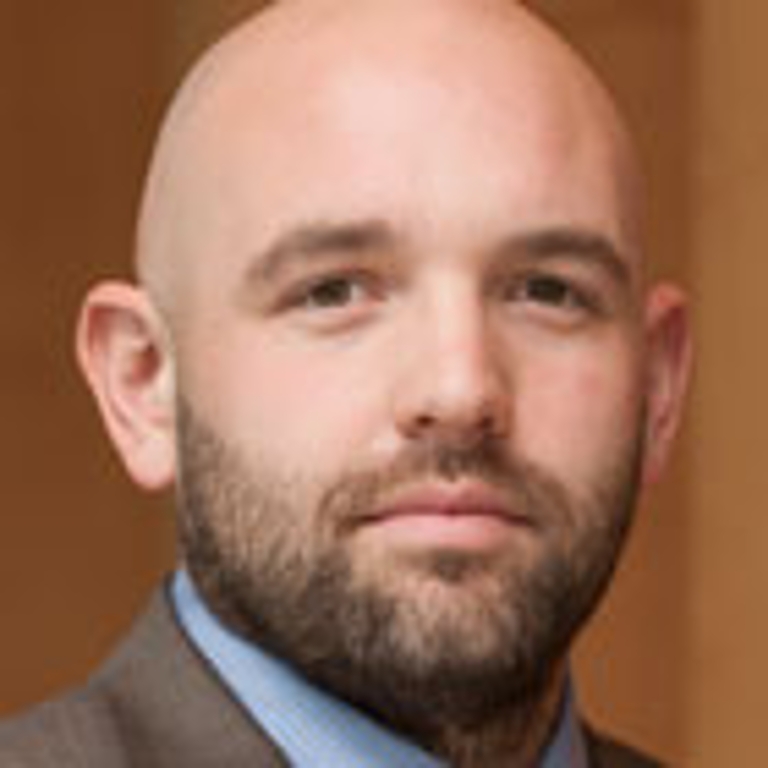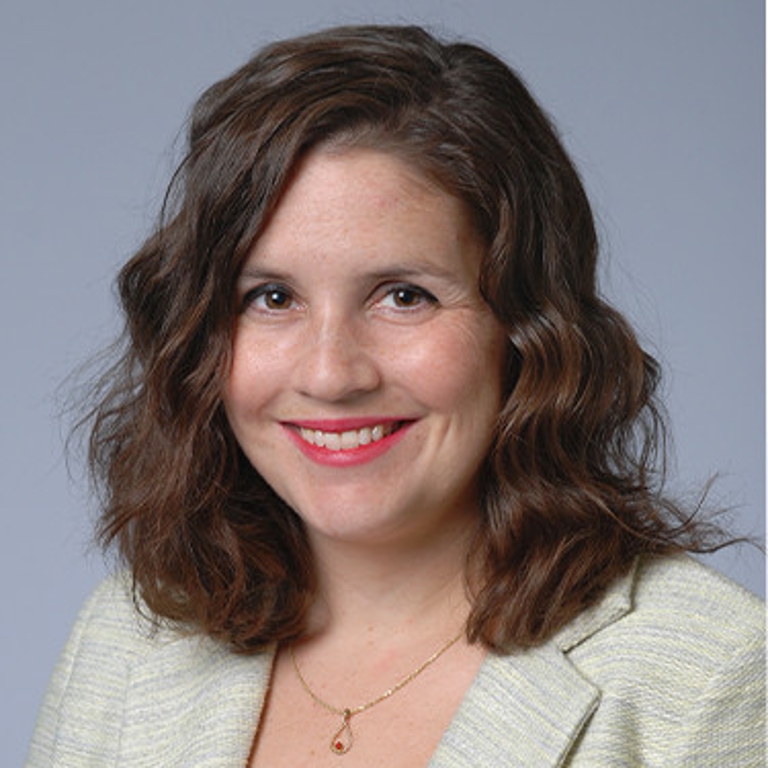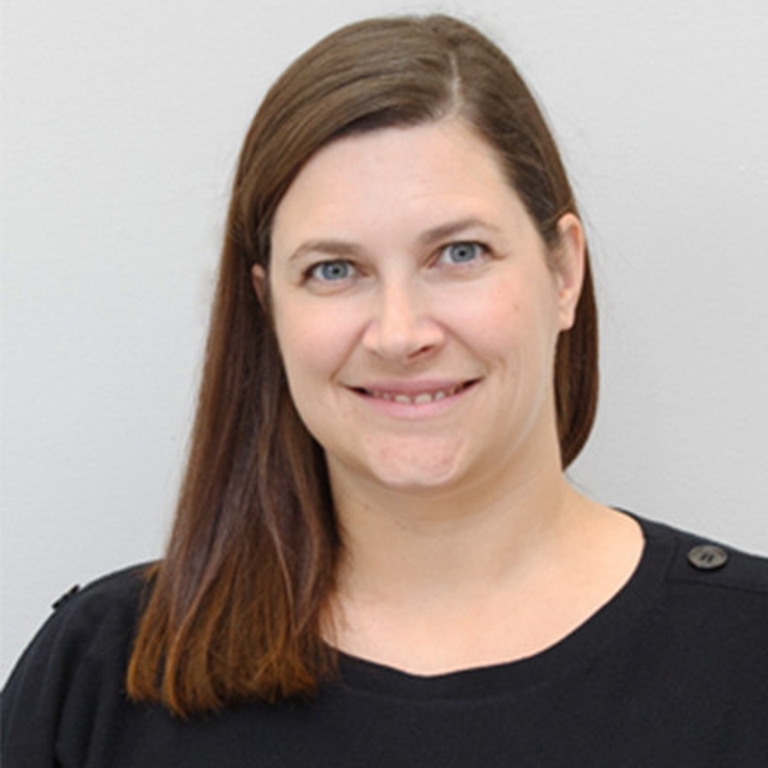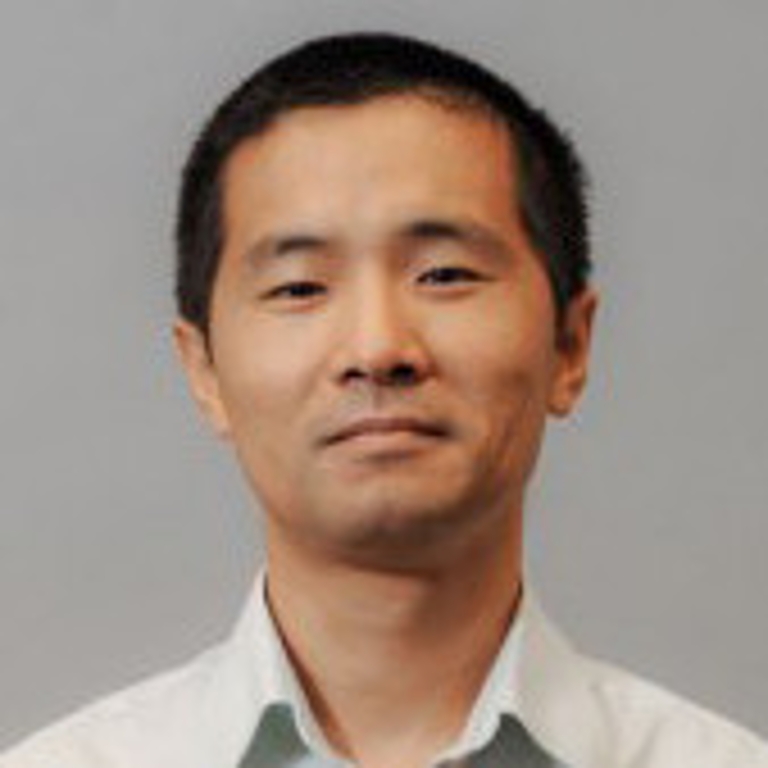In a year marked by a pandemic and increased activism for social justice, the meaningful work of four IUPUI researchers -- including studies of insects as an alternative agricultural protein source and monitoring what nurses are saying on social media during the pandemic -- is more important than ever.
Four IUPUI researchers are recipients of the Research Frontiers Trailblazer Award, an annual recognition presented by the IUPUI Office of the Vice Chancellor for Research. The award honors IUPUI associate professors within the first three years of their academic appointment who have made exceptional contributions to research in their field at this important point in their careers.
This year's recipients are Jeremy Carter of the Paul H. O'Neill School of Public and Environmental Affairs, Wendy Miller of the IU School of Nursing, and Christine Picard and Lixin Wang of the School of Science.
"We are delighted to recognize the innovation and accomplishments of these talented faculty, given the far-reaching impact of their research on our society and the world in a time of change," said Janice Blum, interim vice chancellor for research and graduate education at IUPUI.
Here are the 2020 Trailblazers:

Jeremy Carter
A social scientist whose research agenda affects policy and practice in the criminal justice system, Carter is working on multiple projects tackling both the pandemic and racial injustice.
Together with colleagues, he is examining the effects of COVID-19 and physical-distancing policies on social events and has published an article exploring the effects of physical distancing on various crime occurrences in Indianapolis and Los Angeles. These findings can help municipalities and police departments better manage decision-making in relation to health safety protocols.
Carter is also working with an interdisciplinary team to develop artificial intelligence systems to predict and manage police training, socialization and patrol pairing -- ultimately improving officer training programs and partnered pairs to reduce officer misconduct. Additionally, he is examining the racial and ethnic composition of police departments across the country and comparing it to the communities they serve to provide insight into the increasing call for police departments to mandate that officers live in the jurisdiction they serve.
"I hope government, foundations and funders will invest in science to examine social reforms, and that society will be open to the notion of science and facts to guide these reform efforts," Carter said. "I hope these current events will serve as a catalyst of more research opportunities."

Wendy Miller
Miller's research focuses primarily on developing scalable, sustainable, patient-centered interventions to improve the lives of people dealing with chronic disease, particularly epilepsy.
When COVID-19 began to spread, Miller wanted to see how it affected people with chronic conditions, who are at higher risk for getting sick from the virus. A nationwide survey targeted adults with epilepsy and their caregivers to discover how the pandemic has affected their ability to receive medication, communicate with providers, manage side effects and more.
Miller also began a study examining what nurses were posting to Twitter in response to working on the front lines of the COVID-19 pandemic. This information can help hospitals better prepare for the next time an outbreak of this magnitude may occur, while also shining light on the important role nurses played during this historic time.
"The COVID-19 pandemic, as horrible as it is, has given an opportunity for nurses to really demonstrate what we do in terms of patient care," said Miller, a nurse herself. "I think that's pretty special, and I hope that it continues even after the pandemic is over so the public knows how important we are as a profession."

Christine Picard
Picard studies forensically important insects. She works primarily with two groups of insects: flies and beetles.
"My research in forensics represents a small part of the overall research mission in my school, and my research is not traditional for our campus focused on life and health sciences, so this recognition means a lot," said Picard, who leads the Forensic and Investigative Sciences Program. "No research is done in a vacuum, and being recognized for this honor just means I have surrounded myself with the best scientists around."
The main focus of Picard's lab is determining the correlations between observable differences and DNA across populations of insects. Her lab was one of many affected this year due to the enforcement of COVID-19 safety measures. While it has been hard adjusting to reduced interactions with her students, Picard said, their resourcefulness has helped her remain positive as they continue their important research.

Lixin Wang
Wang works to better understand how changes in climate and other environmental factors impact vegetation dynamics and how vegetation regulates climate under a changing environment. The way vegetation responds to climate change is one of the uncertainties in climate predictions, and Wang's research helps fill important knowledge gaps in this area.
With safety measures in place to protect against COVID-19, Wang has seen both lab work and field work affected by the pandemic. Because much of his research requires extensive travel and data collection in very remote sites, he vows to find ways to be more resilient to disruptions and pursue a new interest in understanding the environmental impact of the pandemic.
"In many ways, the pandemic is exacerbated by climate change, and it's a preview of the scope of the global problems climate change could bring to us," Wang said. "I am thinking about how to improve communication of my research to the general public and make every effort to let the public be more aware of the grave risks involved with climate change."
Description of the following video:
[Upbeat music plays]
[Video: The words "2020 Research Frontiers Trailblazer Recipients" appears in red text against white background.]
[Video: Woman with crossed arms stands in front of windows. An IU trident and the text "Christine Picard, PHD, Associate Professor of Biology" appears in lower third of the screen.
Picard speaking: So my research looks at investigating the correlation between insects and some of the behaviors they exhibit.
[Video: Picard seated in classroom speaking to camera]
Picard speaking: And so we do that by looking at the DNA level. And we're interested in applying that to a couple of different areas. One area in particular is trying to understand, in a forensic context, how quickly or how slowly an insect develops.
[Video: Picard and another woman, wearing masks, talk to each other next to shelves in a laboratory.]
[Video: Close-up of insects inside a plexiglass frame.]
Picard speaking: And that can be useful for estimating a post-mortem interval, for example, so it has a big forensic application.
[Video: Picard sits in classroom speaking to camera.]
Picard speaking: Another area that we're interested in is insects as feed and food
[Video: Picard and another woman wearing lab coats look at computer screen in laboratory.]
Picard speaking: It's a sustainable agricultural product. It is the future of food, likely
[Video: Close-up of a graph on a computer screen.]
[Video] Close-up of a woman, wearing a mask and looking at a computer screen in a lab.]
[Video: Return to Picard sitting in the classroom and speaking to the camera.]
Picard speaking: And so we are interested in trying to understand how these insects develop and how we can optimize that to make it even better of a system.
[Video: Picard and another woman, wearing lab coats and masks, work with samples in a laboratory.]
Picard speaking: Every day when I speak with my students, and I hear about new things that they've discovered, it just gives me another boost to just keep going.
[Video: Close-up of hand wearing a blue glove holding a test tube in a laboratory.]
Picard speaking: And so I think that I'm trying to continue to discover new things and to learn something, which is what I've wanted to do all along.
[Video: Close-up of insects pinned in trays.]
[Video: Picard, wearing mask and lab coat, looking into a microscope in a lab, with a second woman in a mask and lab coat standing nearby.]
Picard speaking: I just want to learn something new every day, and I'm lucky that I get to do that.
[Video: Return to Picard sitting in a classroom and speaking to the camera.]
Picard speaking: Having an impact on society as a whole would be the ultimate goal for any researcher. And, whether it's the forensic science work that I do, which would have an impact on victims and other people associated with the criminal justice system, to the insects as feed and food, which will allow us to feed the growing population in this era of climate change.
[Video: Picard walks down a hall, facing away from the camera.]
[Video: Camera switches to front view of Picard walking down a hall, wearing a mask, and then entering a laboratory.]
Picard speaking: And so I think that's how you gauge success is how that impacts society as a whole.
[Video: Fade to black, then image of a man, with arms crossed and standing in a hallway, appears on screen. IU trident and text "Lixin Wang, PHD, associate professor of earth sciences," appears on lower part of screen.]
Wang speaking: My field of research is ecohydrology, and essentially, I'm interested in the interaction between vegetation dynamics and the water cycle.
[Video: Wang sits in a chair, speaking to the camera.]
Wang speaking: I think I'm always thinking about cutting-edge questions in my field, in terms of how vegetation impacts the climate, impacts the whole earth's system. Because while it's a big unknown question in the earth-science system, is how vegetation actually responds to the climate change and to regulate the climate.
[Video: Wang and another man, both wearing masks and lab coats, work together in a laboratory.]
[Video Close-up of Wang, wearing a mask.]
Wang speaking: So my research will basically address the fundamental questions, how vegetation plays a role in the whole system, and that will reduce our future predictions about the impact of climate change on the whole earth.
[Video: Man points to graphs on a computer screen.]
[Video: Return to Wang sitting in a chair and speaking to the camera.]
Wang speaking: For example, I talk about drought impact for agriculture that is by example.
[Video: Wang works in laboratory, wearing a lab coat and mask.]
Wang speaking: Utilizing the knowledge of ecohydrology to helping the societal issue. At the same time, not only agriculture plant will be impacted, so natural plants, natural vegetation will also get impacted.
[Video: Close-up of a man's hand making notes on a piece of paper.]
[Video: Return to Wang sitting in a chair and speaking to the camera.]
Wang speaking: For example, we have a project that is a forest response to drought. So we know forest is actually a big player in terms of the global carbon cycle. Because forest, together with soil, they actually take up 30 percent of the global carbon we emit.
[Video: Wang and another man, both wearing masks and lab coats, work in a laboratory.]
Wang speaking: And when drought comes, that will reduce their capacity to actually take up the CO2.
[Video: Close-up of a man's hand putting test tubes with green tops into a tray.
[Video: Return to Wang sitting in a chair and speaking to the camera.]
Wang speaking: At same time we know some trees are different from others. So basically a forest's composition will actually impact the carbon sequestration of the whole forest. So my research actually tries to understand how they can do that, why they do that? So we actually use some advanced technique to actually monitor their physiological response and try to understand why they do that.
[Video: Wang walks down a hall toward the camera, wearing a mask and lab coat, and opens a door to enter a laboratory.]
Wang speaking: Because I think only if we understand why they do that, we can then understand how do they respond in the future.
[Video: Fade to black. Woman appears on screen standing in front of a stairway. IU trident and text "Wendy Miller, PHD, RN, associate professor of community & health systems," appears on lower part of screen.]
Miller speaking: So my research program is focused on improving self-management and quality of life for people with chronic diseases and specifically epilepsy.
[Video: Miller sits in a classroom speaking to the camera.]
Miller speaking: And my program of research really focuses on using the patient voice through big data and other methods to make sure that the interventions that we build are really focused on what's important to patients. So capturing the patient voice is really important when you're building a behavioral intervention to improve outcomes.
[Video: Miller walks down a hall toward the camera, carrying a closed laptop. She opens a door and enters an office.]
Miller speaking: And when I did my Ph.D. and then my early career as a scientist, we relied on traditional methods like qualitative and then quantitative surveys and model testing.
[Video: Return to Miller sitting in a chair and speaking to the camera.]
Miller speaking: But what's really unique about my research now is that we have added to that the mining of social media data. So patients, when they have questions about their illness, not just in epilepsy, but in others, they will join a Facebook group. They will go to a foundation site like the Epilepsy Foundation and ask each other questions.
[Video: Miller looks at computer screens.]
Miller speaking: So when you mine that data, it, the difference between that and the traditional methods is it's an organic type of data generation. There was no instrument through which that data came from the participant.
[Video: Close-up of a woman's hand using a computer mouse.]
[Video: Miller looks at computer screens; a nameplate with "Wendy R Miller, PhD," appears in the foreground.]
[Video: Return to Miller sitting in a classroom and speaking to the camera.]
Miller speaking: So it's actually in some cases more reliable and it doesn't rely on the researcher to know what to ask. So I did get some pushback initially because it is so new and sort of a strange way to do this type of research, but it has been extremely successful and shown us things that we didn't know that we're now building into interventions to help people with epilepsy. Even though they have an illness, as a nurse, my perspective is getting them to their maximum level of functioning, even in the context of having that illness. So I think it's all about quality of life. So that is where this type of research can really be impactful.
[Video: Miller walks down a hallway, facing the camera.
Miller speaking: I really didn't know if we would find anything different in social media or other large data sets or Twitter. But I feel like here we have the freedom to be as innovative as we possibly can be because that's the only way that we're going to make these large gains.
[Video: Fade to black. A man standing in front of a stairway appears on screen. IU trident and text "Jeremy Carter, PHD, director of criminal justice and public safety" appears in lower third of screen.]
Carter speaking: My research, put simply, involves creating evidence-based strategies for policing and criminal justice more broadly.
[Video: Carter sits in a chair, speaking to the camera.]
Carter speaking: Most recently I've been involved with doing spatial temporal data modeling. Especially how can we take data in space and time and use it to help anticipate where problems and challenges are going to be in our community? So hopefully we can develop effective interventions so they're evidenced-based.
[Video: Carter sits at a long table working on a laptop.]
[Video: Close-up of Carter looking at a laptop.]
Carter speaking: When you work with the police department, what you do can impact everyone that lives in that city.
[Video: Camera angle over Carter's shoulder as he works on a laptop.]
[Video: Return to Carter sitting in a chair and speaking to the camera.]
Carter speaking: But most importantly, what we're looking for are, are we making an impact in those communities that most need it? And so when we talk about the intersections of service delivery, of access to good quality-of-life outcomes, when we talk about systematic racism, we talk about social unrest around social issues, all those things coincide in different parts of the city.
[Video: Carter works on a laptop in front of two desktop computer screens.]
[Video: Return to Carter sitting in a chair and speaking to the camera.]
Carter speaking: And so what we're trying to do is really figure out where in the city can we have the biggest impact on people's lives, and that's through using the data on those metrics to inform what we do and where we go.
[Video: Carter walks down hallway. Screen changes to white background with IU trident and the words "IUPUI Office of the Vice Chancellor for Research" and "Filmed at the IUPUI Faculty Crossing" appear on the screen.]
[Video: Music plays, fades out.]






